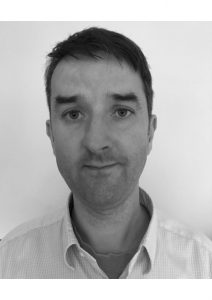
Interview series ‘life after the PhD’: Alex Hartland
‘Life after the PhD’ is a series of interviews conducted with former University of Manchester postgraduate students, discussing the multiple paths available for students once they finish their doctoral research. In this issue, we present a summary of a fascinating conversation we had with Alex Hartland, who finished his PhD in Politics at the University of Manchester to take on a role as a postdoctoral researcher at the University of Saarland, Germany
Firstly, please could you introduce yourself and explain where you are in your (post) PhD journey?
Since March I have been a postdoc at the University of Saarland, researching political trust and representation on a Horizon Europe project called “Activating European Citizens’ Trust in Times of Crises and Polarisation, or simply “ActEU”. Meanwhile, I submitted my PhD thesis in March and had my viva in June. I didn’t quite realise how long the last steps of the PhD would take, but the university admin and my examiners and supervisors were very helpful with the paperwork and practicalities. There was a bit of waiting around for sorting out getting feedback on chapters and so on. Rather than take a holiday, which I probably should have done, I started applying for postdocs during this period and was in the right place at the right time to get the job in Saarland.
What was important to you when you were applying to jobs? For example, the country, length of the contract, teaching vs. research posts, future career opportunities etc.
I had certain countries, subjects, and methods in mind, but I tried to be as open-minded as possible about all three. My general plan was to apply for anything vaguely appropriate and worry about the rest later. That was a way to trick myself to keep working on my application and then see what kind of response I got, and maybe get some interview practice along the way if possible. In some ways, this helped to keep the pressure off as I didn’t become too invested in any single vacancy, although it also meant handling quite a few rejections. That said, most of the rejection emails came months later after someone else had accepted the job, by which point I had almost forgotten I had applied in some cases. This helped to soften the blow a little…
What has been the biggest challenge starting a postdoc abroad?
The practical side of moving to a different country definitely takes time and has its frustrations, especially if the language and bureaucracy are unfamiliar. Finding a place to live, moving in, sorting out utilities, registering with the local authorities: it’s a full time job in itself. I lived in Germany before doing my PhD – which did help in my case –, but it’s never easy. However, the great thing about moving for an academic role is that most of your colleagues will have done exactly the same thing, often quite recently. In my case, my new colleagues had lots of good advice about all the practicalities. It also helps to take the pressure off at work too, as there’s a general understanding that it will take a few months to get settled and really focus on the new role. And the process is similar in many ways to moving to a new city or region, so if you’ve already done that as an undergrad or for your PhD, you’ll have a good idea of what to expect.
How have you found working as a postdoc compared with being a PhD student? Are there similarities between your PhD research and your postdoc topic?
At least for politics, I think there is less variation in PhD roles than in postdocs. For PhDs, you more or less know that you will read a lot, maybe do some empirical research, go a bit mad, and (try to) write a bunch of chapters. From speaking to other postdocs, their work seems to be more diverse. It could be quite similar to your PhD, for example if you have funding for your own project. But working on someone else’s project can be quite unpredictable. In my case, the early stages involved a lot of admin and project management, coordinating with our partner institutions while we started gathering the data. This was quite new for me, but it really makes you think about what you want to study, what questions you want to investigate, and gets you in touch with lots of other scholars in a short space of time. And the more familiar routine of analysing the results and writing papers will come later too.
Finally, any other tips or reflections that you think would be useful for current PhD students?
I initially thought they would be generic or irrelevant, but I found those ‘How to apply for academic jobs’ books and blogs to be really useful. They are often a bit hard-nosed, but most of them include some kind of template for writing a good cover letter or project proposal, advice on preparing for interviews etc. They helped me to see the application process from the other side and tailor my response, as my first few applications were not well focused. My supervisors were also keen to give advice and feedback on my applications, so don’t be afraid to ask for help. And of course, Manchester has a pretty big politics department with lots of people in a similar situation, so you should definitely take as much time to complain and commiserate with colleagues about the whole process as you can. Finally, these were just the things that I with my privileges found most helpful when I was coming to the end of my PhD, but it’s a different experience for everyone, so don’t feel like you have to fit into a particular box or fixed way of doing things.
Short bio

Alex Hartland is a postdoctoral researcher at the University of Saarland, Germany. He is working on ActEU, a Horizon Europe project on political trust (see acteu.org for more details). He completed his PhD on the influence of public opinion and lobbying on asylum policy in Germany and the UK at the University of Manchester in 2023. His research focuses on political trust, interest groups, and comparative European politics, using survey experiments and quantitative text analysis.
Email: alexander.hartland@uni-saarland.de
Twitter: @HartlandAlex

0 Comments